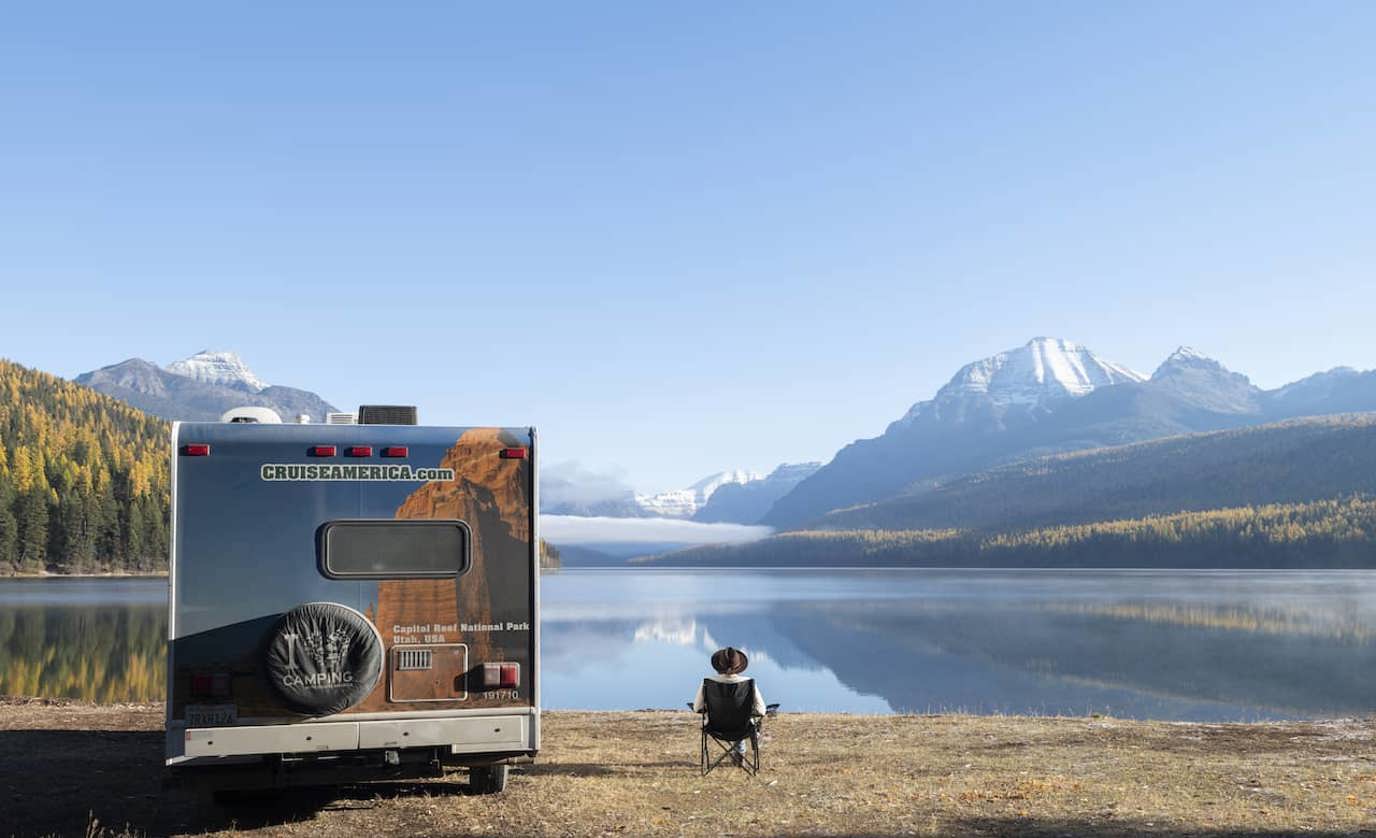
Less Waste, More Love. My Guide to Zero Waste Camping
ShareWhen I first started camping, I had a “more is more” mindset. All of the snacks and convenient camp foods filled my cargo space without a second thought, and my campmates and I easily filled a bag of trash each day.
One day, coming back to the campsite from a canoeing excursion, I was greeted by a raccoon hanging from the bag of garbage suspended from the tree! The little critter ran off, but I found myself thinking there must be another way.
That’s how I found my way to zero waste camping. I realized I could incorporate more of the habits and behaviors I had used at home to cut back on my environmental footprint even in the Great Outdoors.
And while sometimes I miss hot campfire s’mores (too much plastic!), I definitely don’t miss the pounds of trash I’ve avoided by trying to go zero waste while camping.
What Is Zero Waste Camping?
Zero waste camping takes the idea of “leave no trace” to the extreme. The goal is to eliminate as much excess waste as possible to make the smallest footprint on the environment.
This goes beyond picking up trash at the campsite and is a philosophy that starts long before leaving. From choosing good gear to eliminating single-use items to meal prepping, zero waste camping is a thoughtful way to camp more in harmony with the environment.
Protecting the Earth
The reason driving my decision to go to a zero waste camping style is doing my part to protect the Earth. I want to make sure I can visit and enjoy as many beautiful areas as possible while they’re still around. I hope that by doing what I can, I can help preserve these places for others to enjoy as long as possible, too.
The 5 Rs
Since the 1970s, the 3 Rs (Reduce, Reuse, and Recycle) have been a very common framework for environmental protection. Zero waste practitioners have expanded on this philosophy to create the 5 Rs instead:
Refuse
If you don’t need it, don’t take it. When I’m camping, this often looks like only one of us taking the paper map or guide. There’s no need for every camper at your site to grab a guide when you’ll actually only use one.
Reduce
Try to reduce the amount of what you do need. I know just how easy it is to fill all of the cargo space you have with camping gear, snacks, and toys. The more you bring in, the harder it is to eliminate excess waste.
Reuse
If it can be reused, do so! And prioritize reusable everything. It’s better to wash it and put it away than to throw it away and buy new. Gone are the days of paper plates — bring along a set that can be washed and used again.
Recycle
Recycle when you can, especially plastics if they must be used. I like to bring a small bag for any waste and a larger bag for recyclables to dispose of when I have access to a proper bin.
Rot
Many food scraps are biodegradable, but that process can take a while, especially in non-native environments. Instead of tossing that banana or orange peel, collect it in a compost bin to take home with you as part of a regular composting routine.

Tips and Tricks for Zero Waste Camping
Armed with these 5 Rs, you have the foundation of a successful zero waste camping trip. Here are a few tips and tricks to help implement all of these Rs.
Eliminate Single-Use Plastics
This tip is a big one! Plastic bags, food wrappers, straws, plastic bottles, etc. can all be a big source of waste at the campsite. If you can avoid going shopping right before hitting the road, you can cut back on some of these conveniences in favor of more sustainable options. Most of these can be replaced with reusable items.
Reuse, Reuse, Reuse
In lieu of paper and plastic, bring enamel or titanium dishes, bowls, and silverware. With just a little biodegradable soap, these items can all be washed and reused for every camping trip. I like to bring Tupperware from home or even beeswax food wraps to manage any leftover food storage as well since this can be a big source of waste (such as Ziploc bags).
Meal Prep
I like to prepare as much food as possible in advance and bring it in jars or reusable containers. Try to bring just what you’ll need rather than too much “just in case.” Planning a menu and prepping in advance will allow you to buy in bulk and cut back on the amount of impulse convenience buys. Try for one-pot or no-cook meals when you can.
Composting
Not everyone has the time or space to compost, though there have been lots of strides in urban-friendly or small space storage solutions for compost bins. For those who cannot compost easily at home, there are many companies that will pick up countertop compost on a regular basis or even drop-off locations that you can bring your leftover camping scraps to.
Buying Gear
Getting everything you need to help you avoid unnecessary waste can initially seem like a major investment, but it doesn’t have to be. When you can, buy second-hand or thrifted items to help build your collection. If you have to buy something new, buy the best quality items that you can afford. These will generally be better crafted and therefore last you much longer before you need to replace them. Donate your old, gently-used items that you no longer need to those who can.
It’s still camping...
It doesn’t have to feel like you’re roughing it just because you’re trying zero waste camping. I have just as much fun enjoying the outdoors in this way as I did before. I love feeling in tune with nature and that I am doing as little harm as possible to the beautiful trails and campgrounds.
Whether car camping in a tent with friends or on an extended trip in my camper, a bit of foresight goes a long way in doing my part to preserve these places that mean so much to me.





